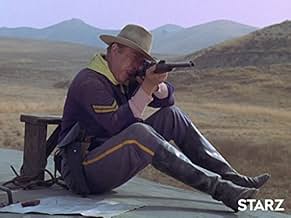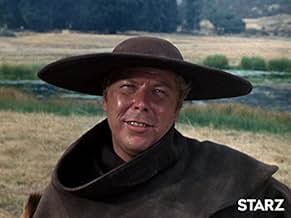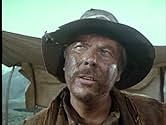Albert Salmi(1928-1990)
- Reparto
- Banda sonora
Albert Salmi nació el 11 de marzo de 1928 en Brooklyn, Nueva York, EE.UU.. Fue un actor, conocido por The Brothers Karamazov (1958), Escape del planeta de los simios (1971) y El verdugo de dragones (1981). Estuvo casado con Roberta Pollock y Peggy Ann Garner. Murió el 22 de abril de 1990 en Spokane, Washington, Estados Unidos.
- Premios
- 2 premios ganados
Reparto
Banda sonora
- Nombres alternativos
- Albert & Roberta
- Altura
- 1.88 m
- Nacimiento
- Defunción
- 22 de abril de 1990
- Spokane, Washington, Estados Unidos(asesinato suicidio)
- CónyugesRoberta Pollock25 de abril de 1964 - 22 de abril de 1990 (their deaths, 2 niños)
- NiñosCatherine Ann Salmi
- PadresSvante Salmi
- Otros trabajosStage: Appeared (as "Roger Gatt"; Broadway debut) in "End as a Man" on Broadway. Written by Calder Willingham, based on his book. Directed by Jack Garfein. Vanderbilt Theatre (moved to The Lyceum Theatre from 17 Dec 1953-16 Jan 1954): 14 Oct 1953-16 Jan 1954 (105 performances). Cast: Robert Dirk, Anthony Franciosa (as "Starkson") [Broadway debut], Ben Gazzara (as "Jocko de Paris") [Broadway debut], Martin Greenlee, Harry Guardino (as "Cadet Officer") [Broadway debut], Richard Heimann, Pat Hingle (as "Harold Koble"), Paul E. Richards, Marc Richman, Eli Rill, Steven Ross, Warren Slocum (as "Second Orderly"), William Smithers, Arthur Storch (as "Maurice Maynall Simmons"), Frank M. Thomas (as "Gen. Draughton"), Richard Vogel. Produced by Claire Heller.
- Listados publicitarios
- TriviaOn April 22, 1990, Albert and Roberta Salmi were found shot to death in their home in Spokane, Washington. The police surmised that Salmi, who was separated from Roberta at the time and was suffering from severe clinical depression, shot his wife and then himself.
- Citas[In 1990, regarding his early years at the Actor's Studio in New York] The actor wanted the audience to recognize an unsavory character as truthfully as he could, so that any audience seeing it would be repelled by that individual and vow never to be like him. If one person left a performance saying, "I will never be as bad as that character was", the actor felt fulfilled. If the person left the theater better than he entered it, we felt we were accomplishing something. The reverse was true, too. If one in the audience saw and believed the goodness in the human condition and sought to emulate this behavior, we, the actors, felt a warm sense of accomplishment. Sometimes, people would come backstage in these amateur school productions and state in an oblique way that they were better people for seeing the production. This was better than any award an actor could get, and still is!
Preguntas Frecuentes14
Con tecnología de Alexa
Contribuir a esta página
Sugiere una edición o agrega el contenido que falta































